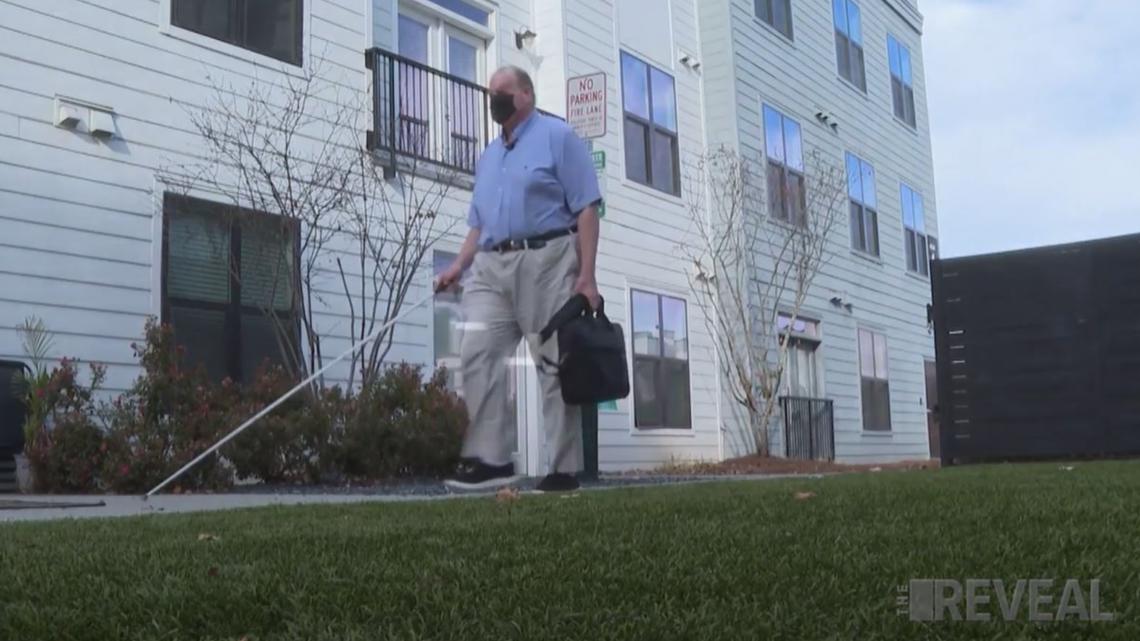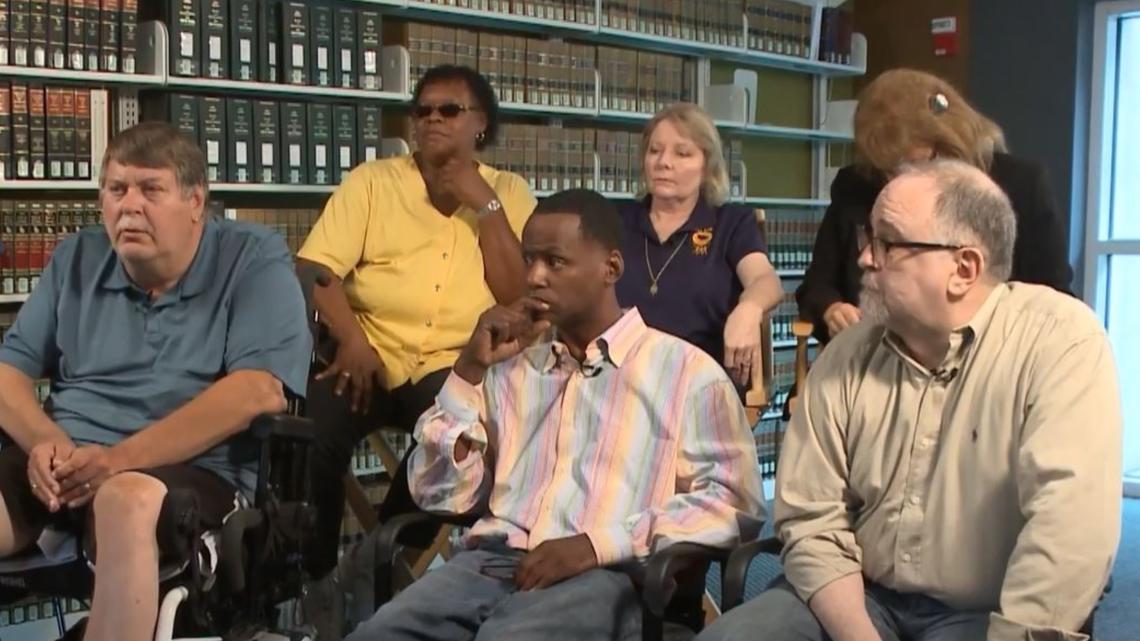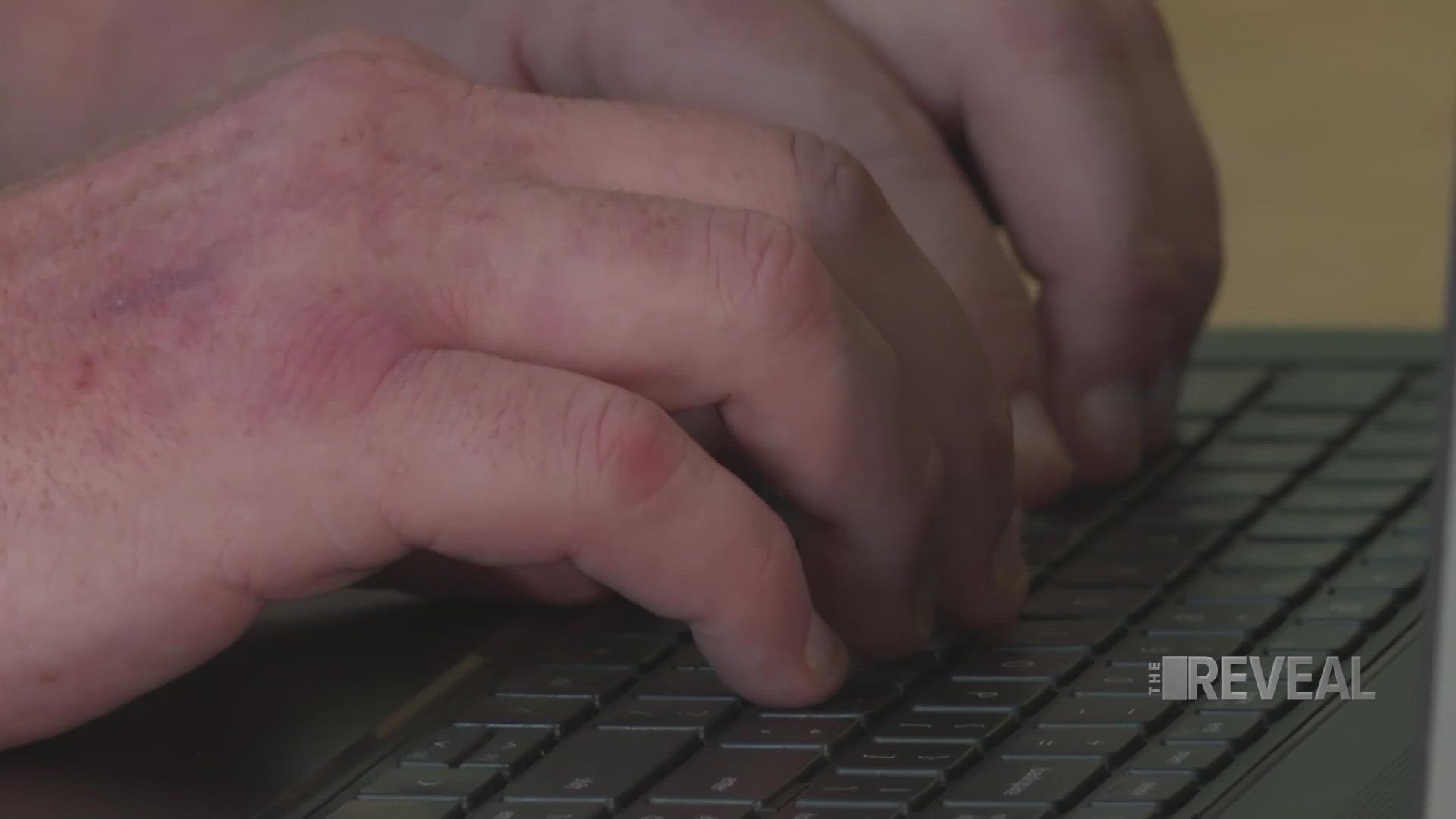ATLANTA — If you don’t believe in superpowers, just witness how fast some blind people can read. Not by braille, but through screen-reader software programs that pronounce the words on computer screens aloud through speech synthesizers.
One attorney at the Centers for Disease Control and Prevention, who is blind, can read up to 600 words a minute. Most sighted people read just over 200 words per minute.
“I would take a nap,” said Michael, who asked us not to use his full name.
Michael can read so fast, it makes legal disclaimers at the end of radio advertisements sound slow.
“This is what people are missing out by not hiring blind people,” Michael said.
When he landed a job at the CDC in 2019, it was a big deal. Within six months, his boss promoted him. He received nearly a perfect score in his first annual review: four-and-a-half stars out of five.
Michael’s supervisors took notice of his work, too.
“I have no reservations giving him my highest recommendation,” one supervisor said in a letter reviewed by The Reveal last year.


Michael said another supervisor commended his work ethic by saying he acts like he's been working for at least 10 years in the field of law, even though at the time he had just started.
Most of Michael's work focused on legal appeals in the office that handles the agency’s public records requests.
He hoped he would one day retire from the CDC, but Michael is now about to leave his dream job after he claimed the agency repeatedly failed to accommodate his disability.
When it all started
The alleged discrimination started with simple requests, like joining co-workers on work assignments. Michael said he was invited to take a tour of a laboratory in February 2020.
When staff learned a blind employee was coming, he said, the trip was scrapped.
“They canceled the trip and shared the whole reason to all my colleagues that, ‘We don't feel safe, that a blind person is coming here,'" Michael recalled. "And, everybody in my office got to see that email."


Months later, he said his work assignments started to change.
While the agency originally hired him to work on appeals, supervisors asked him to focus on redacting information from public record requests deemed protected or sensitive.
Michael said he would have embraced his new duties, but the software program the CDC used to perform redactions did not work with his screen reader.
The company acknowledged the deficiency in an email, writing “our application is not 508 compliant." That is a federal law known as the Rehabilitation Act of 1973.
“Which in plain words states, ‘If you're going to buy something, you got to make sure that everybody can use it,” Michael said.
When he brought it up to his supervisor, Michael claimed the agency avoided addressing it. He said he asked for a visual assistant, something other federal agencies have provided to blind employees, but the CDC never responded to him.
Instead, it offered him $50,000 to leave after he filed a disability discrimination complaint.
“I would hope that people would now know what the agency is about ready to lose because I'm probably going to be leaving,” Michael said.
The CDC declined interview requests for this story citing pending litigation.
A history of similar allegations
The Reveal learned Michael’s claims of disability discrimination at the agency are not unique.
In 2017, 11Alive interviewed seven current and former agency employees with disabilities who claimed the CDC repeatedly ignored their requests for accommodations. Their stories were featured in an 11Alive series titled, ‘Diagnosing Discrimination.’
Angie Fuoco and Pam Gilbertz, both hearing impaired, claimed the CDC rarely provided closed captioning in training videos and employee meetings.
“So, other employees know what’s being said, I don’t,” said Gillis, a former health communications specialist and union president.


Kiley Carter, a former CDC budget analyst who has cerebral palsy, told 11Alive it took him six months to get a handicap parking spot.
“And, I was hired with persons with disabilities,” Carter said at the time.
A diversity and inclusion audit released in 2016 showed the agency tended to view CDC employees with disabilities significantly less favorably compared to able-bodied employees.
“My career was derailed because of my disability,” auditors quoted one employee surveyed for the report.
“CDC allows employees to be discriminated against, for their disabilities," according to another employee surveyed in the audit. "They allow managers to harass, bully and retaliate against employees who fight for their rights that are being violated."
When 11Alive asked the CDC if it has performed any additional audits since then, it didn’t respond.
The fight continues
This isn’t the first time Michael has filed a disability discrimination complaint against an employer.
In 2014, a federal judge ruled partly in his favor after he filed a lawsuit against the U.S. Customs and Border Patrol, where he also worked as an attorney. He said he sued because the agency’s computer programs did not work with screen readers, violating the Rehabilitation Act.
Michael settled with the government for about $500,000. He said his complaint against the CDC is not about getting another settlement.
“I don't want a big settlement," he said. "I want to have job security. I want to provide a good service and show that blind people can provide value to not only the federal government but to private employers. And, we can."
The Reveal is an investigative show exposing inequality, injustice and ineptitude created by people in power throughout Georgia and across the country.
WATCH THE "DIAGNOSING DISCRIMINATION" SERIES:
Diagnosing Discrimination: Disability discrimination
Diagnosing Discrimination: The disclosure
Diagnosing Discrimination: Hidden retaliation
Diagnosing Discrimination: Taking action

